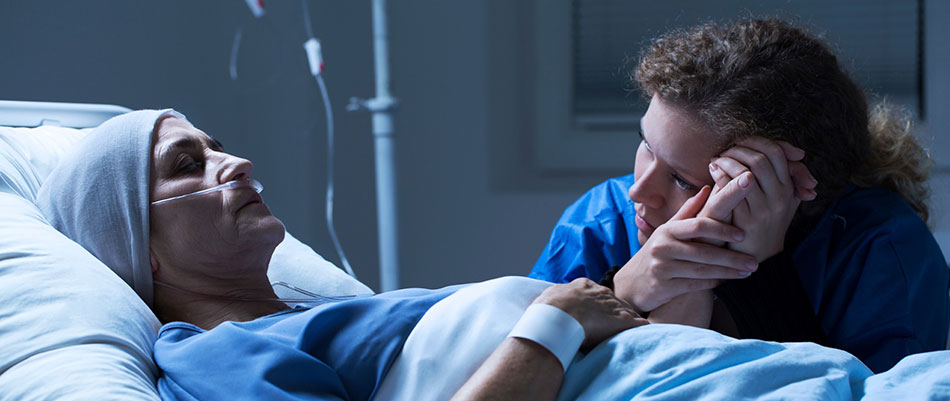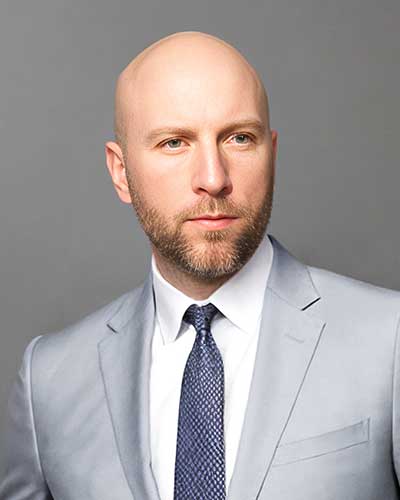September 10, 2021 | Deborah Kotz
Those Admitted to the ICU for Care Are at Significantly Greater Risk of Dying if They Have Little Social Support

Older adults who are socially isolated before spending time in an intensive care unit (ICU) are more likely to experience worsened disability or die when they return home after their hospitalization. That is the finding of a new study published in the Journal of the American Medical Association (JAMA) Internal Medicine.
 “Social isolation among older adults has increased substantially during the COVID-19 pandemic” said study co-author Jason Falvey, PT, PhD, Assistant Professor in Physical Therapy and Rehabilitation Science at the University of Maryland School of Medicine. “Our findings suggest socially isolated older adults are at significantly heightened risk for disability and more than twice the risk of death within a year if they are admitted to the ICU because of a COVID-19 infection or other serious illness.”
“Social isolation among older adults has increased substantially during the COVID-19 pandemic” said study co-author Jason Falvey, PT, PhD, Assistant Professor in Physical Therapy and Rehabilitation Science at the University of Maryland School of Medicine. “Our findings suggest socially isolated older adults are at significantly heightened risk for disability and more than twice the risk of death within a year if they are admitted to the ICU because of a COVID-19 infection or other serious illness.”
In the new study, Dr. Falvey and researchers from Yale School of Medicine examined data from a nationally-representative cohort of 997 patients over age 65 participating in the National Health and Aging Trends Study who were admitted to the ICU from 2011 through 2018. Social isolation was assessed using a 7-point score of the number and depth of interpersonal connections. The researchers found that each 1-point increase in the isolation score was associated with a 7 percent increase in the level of disability and a 14 percent increased risk of dying within a year following admission.
Social isolation has long been recognized as a public health concern. More than 1 in 5 older Americans lack close social ties including meaningful relationships with friends and family. Social isolation is also associated with development of cognitive impairment, disability, and frailty. For patients recovering from a serious illness such as COVID-19, social isolation can hamper their recovery process.
“Despite how common social isolation is, we have very few effective interventions to mitigate this problem among older adults after a hospitalization. This is especially true for the population of older ICU survivors who often have trouble getting out of the house because of declines in strength, walking ability, and cognition,” Dr. Falvey said.
Programs to increase social engagement through virtual options like FaceTime or Zoom have shown some promise in improving social connectedness for older adults recovering from critical illness, the researchers noted in the paper. The research team is planning additional follow-up studies focused on improving recovery and improving social participation among older adults recovering from serious hospitalizations.
Other collaborators on the work include: Andrew Cohen, MD, DPhil; Linda-Leo Summers, MPH; John O’Leary, MA; Terrence Murphy, PhD; and Lauren Ferrante, MD, MHS, from Yale School of Medicine.
“This important research finding sheds light on a crucial health care issue that has become more dire during the COVID-19 pandemic,” said E. Albert Reece, MD, PhD, MBA, Executive Vice President for Medical Affairs, UM Baltimore, the John Z. and Akiko K. Bowers Distinguished Professor, and Dean, University of Maryland School of Medicine. “We need to find innovative ways to socially connect with our older more isolated patients after they suffer through a critical illness. Further research is needed to determine which interventions work best.”
About the University of Maryland School of Medicine
Now in its third century, the University of Maryland School of Medicine was chartered in 1807 as the first public medical school in the United States. It continues today as one of the fastest growing, top-tier biomedical research enterprises in the world -- with 46 academic departments, centers, institutes, and programs, and a faculty of more than 3,000 physicians, scientists, and allied health professionals, including members of the National Academy of Medicine and the National Academy of Sciences, and a distinguished two-time winner of the Albert E. Lasker Award in Medical Research. With an operating budget of more than $1.2 billion, the School of Medicine works closely in partnership with the University of Maryland Medical Center and Medical System to provide research-intensive, academic and clinically based care for nearly 2 million patients each year. The School of Medicine has nearly $600 million in extramural funding, with most of its academic departments highly ranked among all medical schools in the nation in research funding. As one of the seven professional schools that make up the University of Maryland, Baltimore campus, the School of Medicine has a total population of nearly 9,000 faculty and staff, including 2,500 students, trainees, residents, and fellows. The combined School of Medicine and Medical System (“University of Maryland Medicine”) has an annual budget of over $6 billion and an economic impact of nearly $20 billion on the state and local community. The School of Medicine, which ranks as the 8th highest among public medical schools in research productivity (according to the Association of American Medical Colleges profile) is an innovator in translational medicine, with 606 active patents and 52 start-up companies. In the latest U.S. News & World Report ranking of the Best Medical Schools, published in 2021, the UM School of Medicine is ranked #9 among the 92 public medical schools in the U.S., and in the top 15 percent (#27) of all 192 public and private U.S. medical schools. The School of Medicine works locally, nationally, and globally, with research and treatment facilities in 36 countries around the world. Visit medschool.umaryland.edu
Contact
Deborah Kotz
University of Maryland Medicine
dkotz@som.umaryland.edu
(410) 706-4255
